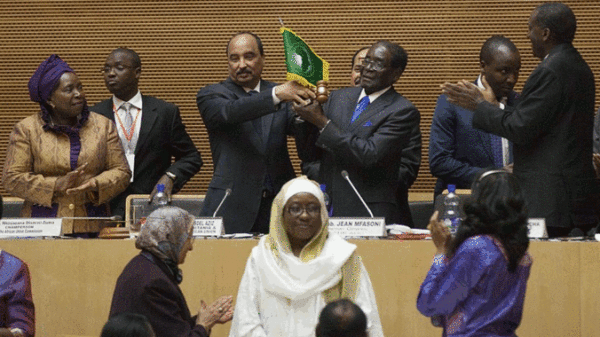PBS: Escaping Eritrea … [Read More...] about ካብ ውሽጢ ቤት ማእሰርታት ኤርትራ
SA must take lead at AU summit on key human rights abuses
South Africa’s hosting of the 25th Summit of the African Union is not only an honour; it also brings with it a great responsibility to address the continent’s most pressing human rights and humanitarian issues.
As one of the continent’s most influential countries, South Africa has a key role to play in ensuring that this vital work begins promptly and effectively. This summit, which began yesterday in Johannesburg and runs until June 14, is the ideal platform to send a loud and clear message of intent.
The crisis situation in Burundi, conflict in Sudan, and South Sudan, among others, are not only cause for concern for the unfortunate civilians caught up in the violence. The extra-judicial killings and the collapse of the rule of law in these countries make a mockery of the African Union’s aspirations for a “peaceful and secure” continent by 2063.

If the African Union is serious about transforming the continent into a place where good governance, democracy, and respect for human rights are the rule, rather than the exception, then it must ensure that those responsible for human rights violations and international crimes are held accountable and that victims obtain justice and reparation.
Otherwise the African Union’s lofty statements and projections for socioeconomic development are little more than hot air. Neither societies, nor economies can progress against a backdrop of unrelenting bloodshed and terror.
The release by the African Union Peace and Security Council of its report on the crimes committed in South Sudan would be a vital step towards the ultimate goal of stabilising the situation there, and African Union member states must press for this during the Summit. The African Union must also demonstrate, in tangible deeds as well as in words, its support for the establishment of accountability mechanisms in South Sudan as a key step in ensuring justice for the victims of horrendous crimes, including murder, torture, and rape, performed by armed groups still operating in this country. Transparent legal proceedings will send a clear signal that such atrocities will no longer be tolerated.
In Burundi, those responsible for the bloody repression of demonstrators opposing a third presidential mandate for Pierre Nkurunziza must be held accountable and, in view of the continuing deadlock in political negotiations, the African Union’s decision to deploy human rights observers in this country must be rapidly translated into acts. The continental body is further expected to raise its voice against the increasing threats, harassment and intimidation faced by human rights defenders and journalists who are forced to flee the country in fear for their safety.
In the Central African Republic, the African Union must demonstrate strong support to the swift operationalisation of the special criminal court recently created to try those responsible for serious crimes. In Mali, too many perpetrators of human rights abuses during occupation of the North of the country by radical armed groups remain at large, and it is the African Union’s responsibility to assist the authorities there in ensuring that justice is done. Likewise, the African Union’s support for similar national proceedings against those responsible for mass killings and other crimes in Côte d’Ivoire and Guinea must be forthcoming and unequivocal. Victims of politically-motivated violence have waited long enough for justice. A failure to clearly demonstrate that those who carry out such atrocities will not go unpunished weakens not only the fragile foundations of these individual countries, but also poisons the roots from which Africa’s future will grow.
Unambiguous and decisive action by the African Union at this month’s summit will help ensure the future of the continent is a prosperous and peaceful one. Now is the time to act.
- Karim Lahidji is president of FIDH (International Federation for Human Rights) and Jacob van Garderen is the director of Lawyers for Human Rights
